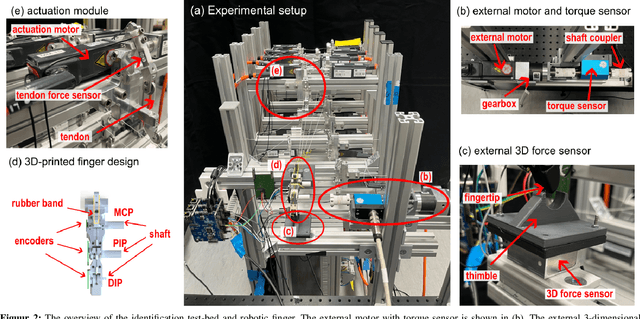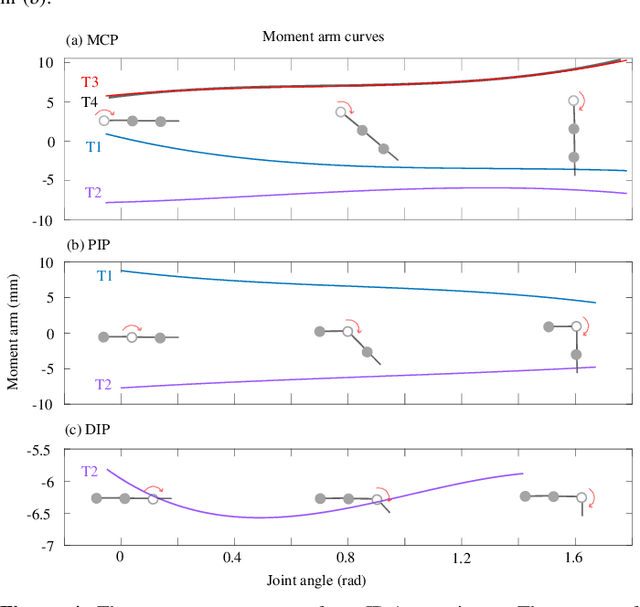Edmundo Pozo Fortunic
Identification and validation of the dynamic model of a tendon-driven anthropomorphic finger
Aug 23, 2024


Abstract:This study addresses the absence of an identification framework to quantify a comprehensive dynamic model of human and anthropomorphic tendon-driven fingers, which is necessary to investigate the physiological properties of human fingers and improve the control of robotic hands. First, a generalized dynamic model was formulated, which takes into account the inherent properties of such a mechanical system. This includes rigid-body dynamics, coupling matrix, joint viscoelasticity, and tendon friction. Then, we propose a methodology comprising a series of experiments, for step-wise identification and validation of this dynamic model. Moreover, an experimental setup was designed and constructed that features actuation modules and peripheral sensors to facilitate the identification process. To verify the proposed methodology, a 3D-printed robotic finger based on the index finger design of the Dexmart hand was developed, and the proposed experiments were executed to identify and validate its dynamic model. This study could be extended to explore the identification of cadaver hands, aiming for a consistent dataset from a single cadaver specimen to improve the development of musculoskeletal hand models.
 Add to Chrome
Add to Chrome Add to Firefox
Add to Firefox Add to Edge
Add to Edge